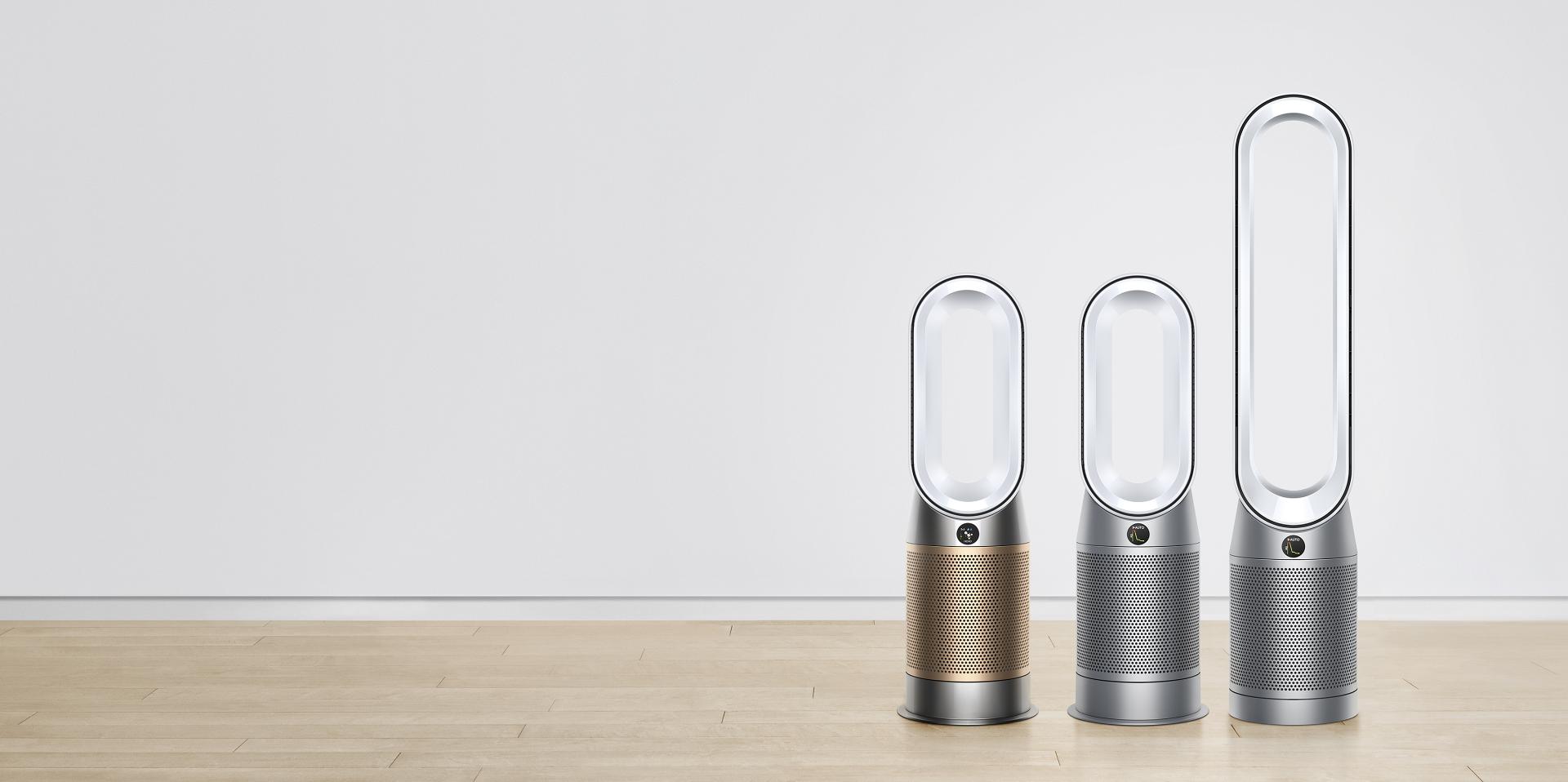Guide | January 17, 2025
Do Air Purifiers Help with Mould?
Mould is a common nuisance in New Zealand homes. Left unchecked, mould can impact your health, triggering respiratory symptoms and exacerbating allergies. Mould can also lead to rotting wood, which may impact certain structures in your home. The good news is that, with an air purifier, mould can be a thing of the past.
Dyson’s innovative air purifier technology is engineered to improve indoor air quality to boost overall health and comfort at home. In this detailed guide, we’ll investigate how air purifiers help with mould and other measures you can take to prevent mould from growing inside.

What causes mould to grow?
Mould is a type of fungus that grows on organic matter, but its reproductive spores can also become airborne throughout the home. Mould thrives on surfaces and indoor areas with enough moisture, which can be caused by a variety of factors:
Mould grows in damp and poorly ventilated areas such as:
Visible mould is typically black, white or green in colour. It’s common to spot mould places like in shower grouting or on windowsills. However, mould gives off a very distinct earthy odour, so you might also smell mould before you see it.
How do air purifiers help with mould?
Without professional intervention, it can be notoriously difficult to get rid of mould once it starts growing. While using an air purifier won’t remove existing mould, air purifiers do help with mould prevention. So, how does an air purifier work to combat mould? Let’s break it down:
Which type of air purifier is best for mould?
When searching for the best air purifier for mould, you should ensure that your choice of machine is engineered with a High Efficiency Particular Air (HEPA) filter. So, what is a HEPA filter? When a filter’s performance is labelled as HEPA, this means it can capture up to 99.95% of airborne particles in the home – including mould spores. Dyson’s leading air purifiers are engineered to meet HEPA H13 (medical grade) standards.1 This is why an air purifier with a HEPA filter is one of the most effective tools for combating mould growth.
How to prevent mould in the home
The best defence against mould in the home is to make sure it can’t grow in the first place. To prevent the growth and spread of mould, we recommend a holistic approach:
Read on as we delve deeper into the do’s and don’t’s of mould prevention.
Do: Use an air purifier for mould spores
Mould from damp buildings becomes insidious as it reproduces spores, which get released into the air. Without an air purifier, mould spores can remain airborne for up to 30 minutes. When these spores are repeatedly inhaled over time, it triggers a host of health problems. This is why using an air purifier for mould spores is so crucial in the prevention of mould growth indoors and mould-exposure symptoms.
HEPA filtration is essential for mould-preventing air purifiers, but there are other features to consider in your quest to choose a Dyson air purifier for your home. Think about room size, remote control, and if you want to heat and cool the room as well. For versatility and cutting-edge purification technology, we recommend the Dyson Purifier Hot+Cool™ Formaldehyde, which includes heating and cooling capabilities, fully sealed HEPA filtration, and control via the MyDyson™ App.
Don’t: Forget to ventilate your home
Even the best air purifier for mould will need the support of good ventilation in the home. It’s important to always switch on extractor fans – like above the stove when cooking or when taking a shower – to help minimise steam and humidity. We also suggest opening windows and doors (where possible) for a few minutes a day so fresh air can circulate throughout your home. If you’re worried about seasonal allergies, you can run your air purifier once all windows and doors are closed to filter indoor air.
Do: Dry off common wet areas
Whether it’s the shower wall, basin, or even bedroom windows, moisture buildup can be impossible to avoid in certain areas of the home. What you can do is regularly clean these damp surfaces and dry off excess moisture where you can – stopping mould growth in its tracks. Keep an eye on these common surfaces:
Don’t: Air-dry clothes indoors
Drying wet clothes inside in poorly ventilated rooms – particularly in winter – can exacerbate mould concerns. Mould loves to grow on damp surfaces and wet clothes can increase condensation levels inside. We suggest using a dryer for your load of clothes or, if the weather permits, hang your clothes outside to air dry. It’s also important to ensure your clothes are fully dry before putting them back in your wardrobe or dresser.
Do: Vacuum carpet regularly
Damp surfaces aren’t the only problem areas for mould growth in the home; carpets, pet beds and mattresses also harbour dust mites, dirt, hair and other fungus. So, in addition to using a Dyson air purifier for mould, you can also look to a HEPA-certified vacuum cleaner to capture these harmful allergens.
Consider the Dyson Gen5detect™ Absolute our most powerful HEPA cordless vacuum2. The Dyson Gen5detect™ Absolute is engineered to illuminate and remove microscopic particles like mould spores, sealing them inside the machine and promoting cleaner, healthier air indoors.
Using an air purifier for mould can produce a number of positive health benefits. Up next, discover how air quality affects sleep and what you can do to improve comfort at home.
1Gas capture rates may vary.
2Suction tested to IEC62885-4 CL5.8 and CL5.9, tested at the flexible inlet, loaded to bin full, in Boost mode by independent third-party, SGS-IBR Laboratories US in 2022.